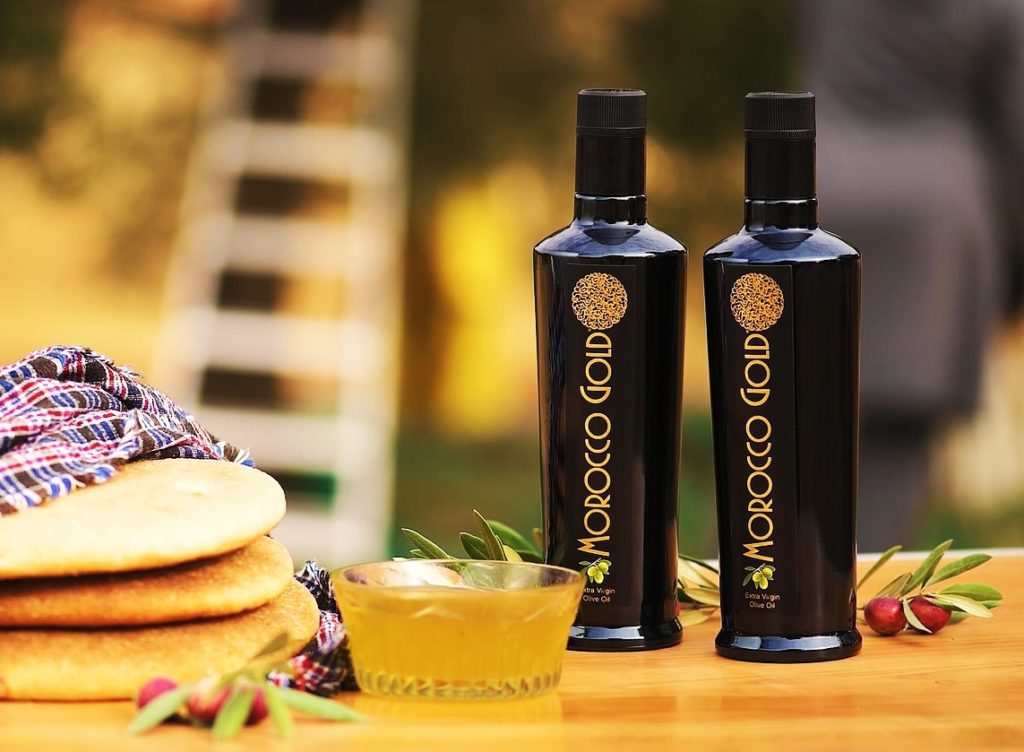Another Great Reason To Choose Plant-Based Foods Like Olive Oil

Summary
- Extra virgin olive oil is a key component of The Mediterranean Diet – one of the most popular plant-based diets around.
Contents
Report Details Potential Cost Benefits of Vegan Diet
Extra virgin olive oil is a key component of the increasingly popular Vegan Diet which offers an alternative way of eating for those keen to move reduce or remove meat from their diet.
According to a recent study from Physicians Committee for Responsible Medicine summarised by Earth.com substituting red meat and dairy products for a greener diet could be kinder to both your wallet and your well-being.
It says:
The focus of the study was a humble vegan diet that is low in fat and bursting with fruits, grains, veggies, and beans. This dietary change could slash your food bill by an impressive 19 percent.
That’s a savings of $1.80 each day when compared to the traditional American diet consisting of meat, dairy, and other animal-derived products.
While this amount may not seem like much, if you multiply those savings over a year, they add up to $650.
Dr. Hana Kahleova is the study’s lead researcher and the Director of Clinical Research at the Physicians Committee for Responsible Medicine (PCRM).
“A vegan diet won’t just save money; it could save lives by helping to avoid or improve conditions like obesity, type 2 diabetes, and heart disease,” said Dr. Kahleova.
It’s easy to assume that eating plant-based will break the bank—after all, trendy organic products can be pricey. But studies consistently show the opposite. A vegan diet, focused on whole foods like vegetables, grains, legumes, and nuts, can be up to 30-40% cheaper than diets that rely heavily on meat and dairy products.
A report by Oxford University in 2021 demonstrated that vegan diets, when based on cost-effective staple foods such as beans, rice, and seasonal vegetables, significantly reduce food expenses. For instance:
A report by Oxford University in 2021 demonstrated that vegan diets, when based on cost-effective staple foods such as beans, rice, and seasonal vegetables, significantly reduce food expenses. For instance:
- Meat alternatives like lentils or chickpeas cost a fraction of the price of pasture-raised meat.
- Grains, tofu, and bulk-buying nuts can stretch your grocery budget far more efficiently than cheese or processed meats.
What about olive oil? Despite being hailed as a premium product, extra virgin olive oil can be used sparingly to enhance flavor, reducing the need for pricier pre-made sauces, dressings, or condiments. A single bottle used wisely can enrich countless meals, providing affordable luxury for your new-plant based lifestyle.
The Benefits Of The Mediterranean Diet With Extra Virgin Olive Oil At Its Heart
If you like the sound of a plant-based diet to protect your health and food costs where is a good place to start? At Morocco Gold, we have always been strong advocates for the benefits of The Mediterranean Diet.
With its emphasis on fruits, vegetables, legumes, fish, low-fat dairy, and extra-virgin olive oil, this heart-friendly diet might cost you a tad more – about 60 cents per day – compared to the Standard American Diet (SAD).
The Mediterranean diet is often celebrated as one of the world’s healthiest eating patterns, especially for its focus on whole plant-based foods and healthy fats like olive oil. By adapting this tradition to a vegan framework with olive oil at the core, you can unlock life-changing benefits.
1. Heart Health
Extra virgin olive oil is rich in monounsaturated fats and polyphenols—compounds that have been shown to:
- Lower bad cholesterol (LDL) levels by reducing plaque buildup.
- Improve good cholesterol (HDL) for overall cardiovascular health.
- Reduce inflammation, which is at the root of many chronic illnesses.
A study published in the New England Journal of Medicine found that individuals using olive oil daily reduced their risk of major cardiovascular events (like strokes) by 31% over five years. Combined with plant-powered meals naturally low in saturated fats, your heart health gets a double boost.
2. Weight Management
Plant-based meals paired with olive oil deliver the satiety you need. Unlike processed oils or “low-fat” alternatives that leave you hungry for more, olive oil’s richness satisfies cravings and curbs binge eating. It’s especially valuable in vegan cooking, where a splash of olive oil transforms simple dishes into gourmet experiences—think roasted vegetables or a drizzle over leafy salads.
3. Gut Health and Digestion
Olive oil is packed with antioxidants and antimicrobial properties that support gut health. Combined with the fiber-rich nature of a vegan diet, it encourages:
- A diverse gut microbiome, which impacts immunity and mood.
- Easier digestion with fewer bloating and stomach issues.
For those transitioning to a plant-based diet, olive oil also acts as a natural lubricant for your digestive system, making it a stomach-friendly companion.
4. Longevity and Disease Prevention
Regularly enjoying olive oil alongside a vegan diet has been linked to reduced risks of serious illnesses such as certain cancers, Type 2 diabetes, and Alzheimer’s disease. A study from Harvard T.H. Chan School of Public Health concluded that individuals consuming more than half a tablespoon of olive oil daily had a 19% lower risk of dying prematurely from cardiovascular disease.
This “liquid gold” doesn’t just complement vegan staples like quinoa or roasted eggplants; it elevates your meals while potentially adding years to your life.
How To Transition To a Plant-Based Diet With Healthy Fats Like Olive Oil
Thinking about making the switch to a vegan diet but unsure how to get started? Here’s a simple roadmap to help you transition smoothly, while ensuring that olive oil remains a flavorful staple in your kitchen.

1. Start Small with Meat-Free Days
Ease into a plant-based lifestyle by introducing “Meatless Mondays” or meat-free dinners a few nights a week. Experiment with dishes like:
- Mediterranean grain bowls featuring roasted chickpeas, veggies, and a lemon-olive oil dressing.
- Pasta primavera tossed in garlic-infused olive oil with seasonal produce.
2. Invest in Your Pantry Essentials
Building a plant-based kitchen is easier (and more cost-effective) when you focus on versatile whole foods. Start with:
- Bulk grains (like quinoa or brown rice)
- Lentils and beans
- Fresh and frozen veggies
- Quality staples like an aromatic bottle of extra virgin olive oil.
Olive oil can be your secret weapon for creating vinaigrettes, pan-frying tofu, baking rich bread, or finishing soups with a burst of flavor.
3. Focus on Balance and Variety
A vegan diet isn’t just about removing meat—it’s about balancing your meals with proteins, complex carbs, and fats. Olive oil plays a key role here:
- Use it to sauté protein substitutes like tempeh or mushrooms.
- Drizzle it on roasted sweet potatoes for a satisfying dose of healthy fats.
4. Experiment with Mediterranean Flavors
The Mediterranean region provides endless inspiration for plant-based dishes. Tap into their culinary wisdom by trying:
- Hummus with olive oil drizzle paired with whole-grain pita bread.
- Zucchini fritters crisped up with olive oil in a hot pan.
- Fresh tomato and basil pasta, elevated by olive oil.
5. Plan and Prep to Save Time (and Money)
Meal planning is your best friend when transitioning to vegan eating. Spend an afternoon prepping simple batch recipes, like roasted veggies tossed in olive oil, or hearty soups. Not only will this save money, but you’ll avoid the temptation of fast food when the week’s schedule gets hectic.
Community support – such as online forums or local vegan groups – can provide needed motivation and answer pressing questions. Introducing plant-based meals gradually into your routine might make the shift feel less formidable and more sustainable.
Setting achievable goals, like starting with one vegan meal a day, could pave the way for lasting changes that benefit both your health and the environment.
